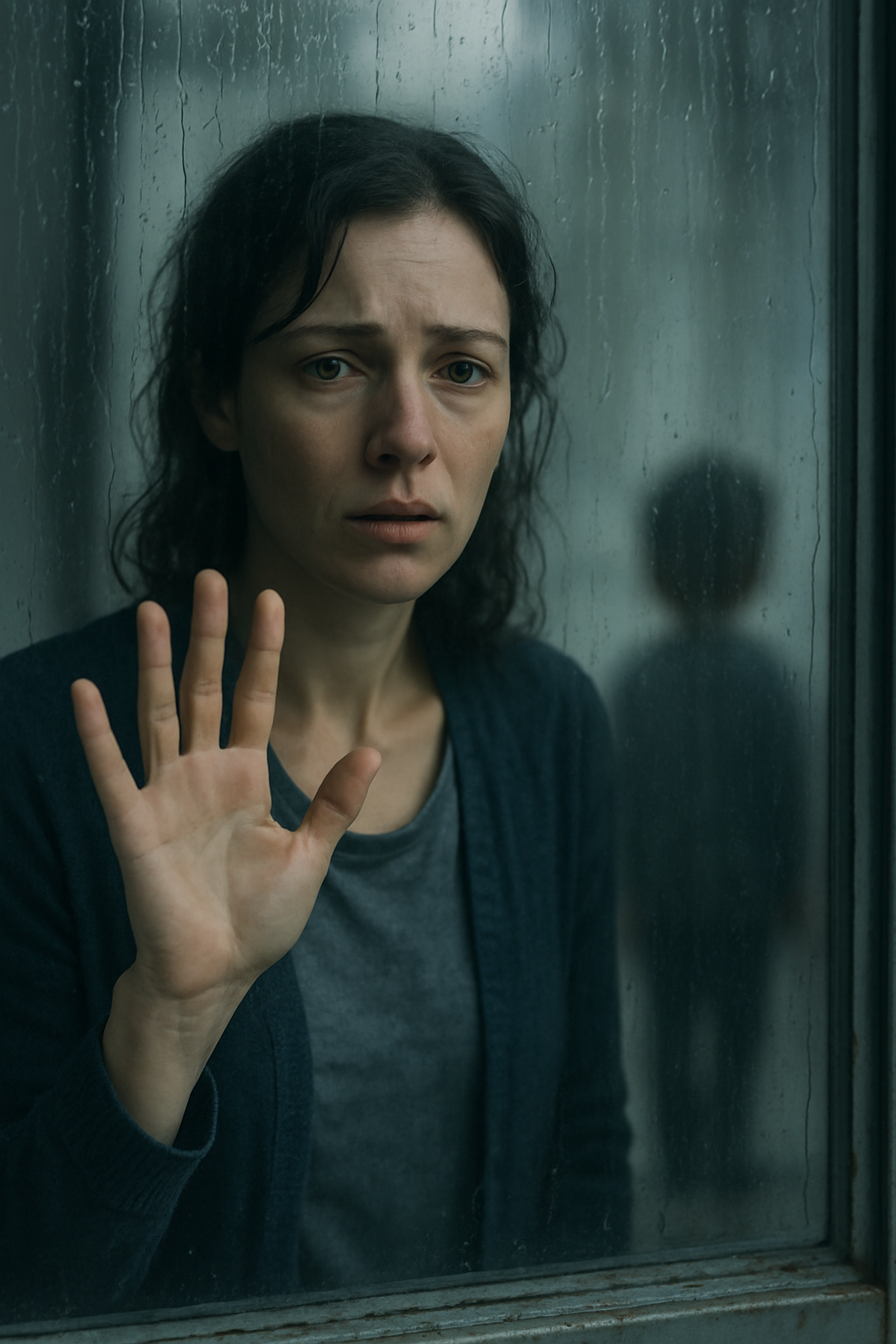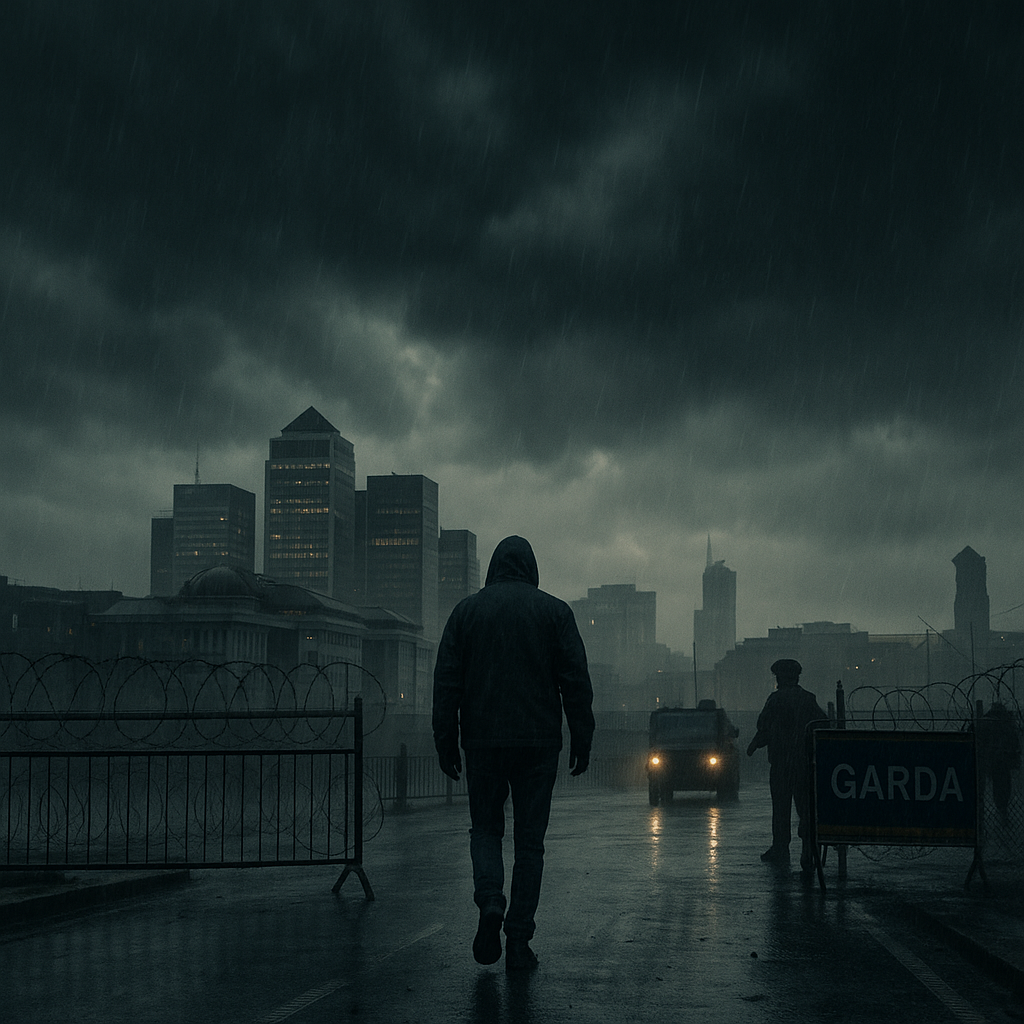Prophet Song
hive-180164·@riverflows·
0.000 HBDProphet Song
Paul Lynch’s Prophet Song, winner of the Booker Prize, was probably not the best choice for a holiday read, but it was the only unread novel in my Kindle collection, and from the first page, I was hooked by the power of the writing. So off I went, deep into the horror-song of a totalitarian dystopia set in a near-future Ireland, a prophetic lament, perhaps, reflecting on where the future may well be headed - if not Ireland, then somewhere else in the world. <center>https://files.peakd.com/file/peakd-hive/riverflows/EoAYGnEFGdgEYDEyJFsBYLFkHo6e34PxHax73ZaYo34ww9BeD6NJCvYGfaESKjaUDqZ.png</center> The novel follows Eilish, a mother of four, whose husband is disappeared by the regime on dubious charges. As she tries to protect her children, including a 17-year-old son called up for national service, and care for her father with dementia, her world begins to close in. Her sister, living in Canada, urges her to flee, but Hannah refuses. Her father belongs in the place where his memories live, she argues, and so does she. Besides, how bad can it be? How bad can it get? But as the horrors mount, choice becomes a luxury she will no longer be able to afford, psychologically or indeed financially. Lynch reminds us that the desire to stay, and the frog-in-the-pot syndrome, is nothing new: > "History is a silent record of people who could not leave, it is a record of those who did not have a choice, you cannot leave when you have nowhere to go and have not the means to go there, you cannot leave when your children cannot get a passport, cannot go when your feet are rooted in the earth and to leave means tearing off your feet." The story evokes Nazi Germany for me, where so many didn’t believe it could happen until it was too late. The novel reminds us that many in war zones simply can’t leave. Without money, connections, or a passport, escape is impossible. The prose is intentionally difficult: there are no speech marks, few paragraph breaks, and the sentences roll on, creating a sense of claustrophobia and entrapment that mirrors Eilish’s own world closing in. Still, it is beautiful - the war arrives like a smoky dervish, for example. But the beauty of the prose belies the reality of events. Her eldest son wants to fight with the rebels. Her daughter locks herself away, starving herself in fear and despair. Eilish is increasingly powerless to protect them. Lynch shows not only the external terrors of authoritarianism, but how it slowly corrodes the psyche. Of course, there are echoes of Orwell’s 1984, because how could any novel about totalitarianism not reflect that benchmark? In some ways this irritated me, as if I'd read enough of this before, but that's unfair. Modern audiences need to read novels in a more modern and relevant context - Dublin, for example, doesn't seem too far away from New York, London or Melbourne, perhaps. > "When you change ownership of the institutions then you can change ownership of the facts, you can alter the structure of belief, what is agreed upon... the NAP is trying to change what you and I call reality... if you say one thing is another thing and you say it enough times, then it must be so... and people accept it as true." That’s the world Lynch wants to immerse you in, the suffering of an ordinary woman trapped in an extraordinary situation. If we can believe this could happen in Ireland, perhaps we can better empathise with those in Syria, Iran, or Palestine. Right now we know journalists are being supressed in Iran and they sure as hell were shot to buggery in Gaza. In some ways this isn't *speculative* fiction at all. It's just now in a different context. > "They are lifting people from everywhere now, he says... a fucking journalist... it has been all over the foreign news but not a word said about it here, they are controlling the newsrooms now though social media is alive with it." Choosing a mother as the protagonist is a powerful move. We see how the politics of terror affects daily life: the meals skipped, the fear in the eyes of children, the helplessness in the face of disappearing loved ones. Eilish’s love for her children is both beautiful and devastating. How do you protect them from a world like this? > "She holds him in her arms, seeking in her whispers to rebuild for her son the old world of laws that lies broken at his feet, for what is the world to a child when a father without word can be made to disappear?"  There’s visceral emotion throughout that reflects how the darkness permeates every aspect of the character's lives. Eilish imagines her marrow “as black as pitch,” her fear “blackens like ink the blood,” her daughter’s “sleeping heart beating the poison through her body.” The pace accelerates as war reaches the streets around her. When her second son is hit by shrapnel, she must cross a war zone to reach him. I couldn’t help but think of mothers in Gaza, dodging bullets and bombs to find their children. Ultimately, it’s Eilish’s fierce maternal love that anchors the story. You want her to succeed, though you know the odds are insurmountable. But love still matters: > "Your father is with you all the time... he is always here with you because your father is always alive in your heart... the love we are given when we are loved as a child is stored forever inside us... it is a law of the human heart." Prophet Song joins the ranks of novels that warn how fragile democracy can be, and how close totalitarianism might lie beneath the veneer of governments. It reminds us: "The world is always ending over and over again in one place but not another... the end of the world is always a local event... it comes to your country and visits your town and knocks on the door of your house."  This is a powerful, haunting novel. It's not an easy read, but perhaps it's just as essential as the novels before it, like 1984. It's a warning against complacency, a plea for compassion, and a reminder that the suffering of others, while distant, is never far away. **All images in this text are created by Chat GPT at my prompting.** <center> # `With Love,`  **Are you on HIVE yet? Earn for writing! Referral link for FREE account [here](https://hiveonboard.com?ref=riverflowsJ)**</center> <a href="https://peakd.com/@naturalmedicine">
👍 critic-on, bluefinstudios, apshamilton, new.things, fee-service-new, akipponn, scooter77, riyuuhi, creativemary, joeyarnoldvn, khalpoint, consciouscat, surrealis, terjix, whatamidoing, stortebeker, liaminit1, anafae, hamismsf, yaelg, jpbliberty, khalccc, coffee-lovers, khallotus, anima-shot, artemislives, therealyme, scooter77.pob, fiatgirl, mind.force, bilpcoinbot, netaterra, hivebeliever, plantpoweronhive, fantagira, drricksanchez, bpcvoter3, bilpcoinbpc, hive-127039, hive-117638, noemilunastorta, pundito, skylinebuds, naturalmedicine, netaterra.leo, aguamiel, josdelmi, shakavon, hive-180569, dlizara, bigorna1, oasiskp2, ngwinndave, veganlove, chichieze, plantpowervegan, nursecommy, artemisshares, fantagira7, c4cristi3, redrica, shanibeer, mountainjewel, phillyc, earthtribe, fenngen, dpend.active, elricmoonslayer, numundo, diosarich, sagescrub, barge, karmadorje, smg, thetreeoflife, chunkysoupsvc, zeusflatsak, vicvperezdelara, kingneptune, hunter-yogi, krrizjos18, lotus-es, trovepower, mmbbot, kimzwarch, re-cognition, hivelift, kenistyles, scottermonkey, sebcam, thegreens, shonariver, karinxxl, bluntsmasha, hive-lu, jessiencasa, revisesociology, cookaiss, immarojas, digitaldan, stoodkev, cedricguillas, stoodmonsters, mimi.ruby, external-panic, simplymike, sbi8, fredaig, ifhy, picazzy005, paulag, chetanpadliya, byebyehamburgers, organicgardener, oac, noekie, battlemaster, naturalkiller, monsterdoom, sbi-tokens, mylibrary, bfciv, genesisledger, steemmatt, princessamber, ghostdylan, sneakyninja, royaleagle, flxlove, ltcih, ltcij, ltcil, ityp, thedailysneak, t1pf, babysavage, ravensavage, golddeck, logantron, hackersfund, plantstoplanks, diabonua, selfhelp4trolls, fionasfavourites, doomsdaychassis, hoffmeister84, freedomtribe, robibasa, pal-isaria, halukshananah, novacadian, teamaustralia, howiemac, steemitcolombia, themightysquid, tigerrkg, alchemystones, homesteaderscoop, anna-newkey, lemouth, whitelightxpress, lizelle, minismallholding, hive-113967, travoved, tryskele, viking-ventures, caribehub, denmarkguy, dougbudlong, tinyhousecryptos, arunava, izzydawn, realtreebivvy, life-relearnt, thanksforplaying, isaria-ccc, lenasveganliving, auelitairene, hive-189742, steemadventures, letusbuyhive, macksby, wildhomesteading, sagarkothari88, wallets4sale, andyjim, potporn, labyrinths, cosmictriage, solominer, trevorpetrie, whangster79, recoveryinc, samrisso, tomtothetom, actifitgirl, movement19, qubes, paradigmprospect, abcor, cards4rent, malomi, penguinpablo, cryptonized, deirdyweirdy, hive.friends, funnyman, alphacore, hungrybear, electronico, traisto, honeydue, jacuzzi, samstonehill, maaasha, acantoni, fotostef, atma.love, helgalubevi, jagged, bonfirepit, steemexperience, guchtere, belleamie, bobydimitrov, samsmith1971, vyb.curation, walkerland, dwinblood, richardcrill, friendly-fenix, dalz.shorts, flamistan, khoola, trostparadox.vyb, crazygirl777, leprechaun, allyinspirit, bearone, bia.birch, thistle-rock, squareonefarms, vyb.pob, tibra, coffeebuds, proofofbrainio, saboin.pob, anacristinasilva, shanhenry, mineopoly, mcsagel, artjohn, crescendoofpeace, enjoycompany, rombtc, simplifylife, prometehum, bghandmade, amy-goodrich, pobscholarship, heart-to-heart, strega.azure, soyrosa, nateaguila, wildlocusthoney, aware007, nickhans, xwalkran, abh12345, thelaundrylady, jayna, philnewton, racibo, mattbrown.art, isabel-vihu, senorcoconut, pladozero, vyb.fund, gloriaolar, freemotherearth, exator, holisticmom, ronasoliva1104, littlebee4, goldenoakfarm, altheana, nonsowrites, lailawrites, melodyguitar, taimen, jemima1996, smartvote, pranwala, bertrayo, hive.samadi, ryanaa, skiptvads, appreciator, flemingfarm, bluemist, sunsea, kkarenmp, ravenmus1c, noalys, malhy, detlev, danielcarrerag, inciter, alenox, lucianav, elgatoshawua, power-kappe, fotomaglys, seryi13, aprasad2325, pinkchic, noelyss, david.dicotomia, kattycrochet, tahastories1, owasco, beerlover, ribalinux, jane1289, wiseagent, innerblocks, thekittygirl, thegreatdayne, communityunity, corvidae, sustainablyyours, szr-network, rosmiapure, thedolphincocoon, ladyangelwolf, theterminal, rc-assist, yummycruz1, eonwarped, chris-uk, failingforward, salicj, yzamazing, dandelion24, wesphilbin, hive-193566, simms50, bulliontools, payne, curie, steemiteducation, federacion45, samminator, hhayweaver, stayoutoftherz, irynochka, sco, irisworld, utube, jigstrike, frissonsteemit, silwanyx, outtheshellvlog, niouton, konradxxx3, bambinaacida, samks, bluemaskman, maclevis, baltai, death-and-taxes, naath, instamental, zirkonov, ikill4yo0, jhymi, boxcarblue, aboutyourbiz, makrotheblack, investingpennies, garudi, revo, clweeks, torico, sorin.cristescu, derekvonzarovich, bifilarcoil, enzor, mejustandrew, skycae, payger, dynamicrypto, pandasquad, mininthecity, putu300, c0wtschpotato, cryptocoinkb, petertag, robmolecule, jmjury, viruk, eliasseth, irionet, edithbdraw, deveney, h-hamilton, steemdiamond, meritocracy, failingforwards, riandeuk, bai123, aries90, blingit, beffeater, mugueto2022, jaylatour, minas-glory, amiegeoffrey, humbe, javedkhan1989, thewobs94, hive-156436, mavis-muggletum, thelivingworld, franco10, ratel, diana.catherine, someguy123, justyy, boynashruddin, gmedley, dhimmel, mahdiyari, sam99, hardikv, coindevil, dipom98, mulletwang, cryptononymous, toocurious, mrsyria, buff-news, apon318, hetty-rowan, jcalero, morey-lezama, greddyforce, musicvoter2, sadbear, raynen, fasolo97, psyo, appics.tutorial, dendih, dcrops, atexoras.pub, merit.ahama, lycanskiss, miko67, cursephantom, baboz, creativepixie, whitneyalexx, hikergirl, kryptof, actaylor, omarzv-sw, jacor, randomblock1, dashfit, eliel, princessmewmew, phogyan, mhel, val.halla, stickchumpion, dauerossi, tomatom, adelepazani, photohunt, indigoocean, scienceblocks, double-negative, littlesorceress, historiasamorlez, soma.unony, xyz001, knightsunited, dmoonfire, mowemu, palimanali, quinnertronics, rondonshneezy, wiggl3, mayberlys, mantis-tobaggon, marcmaron, checkyzk, ghostlybg, spearhead1976, salmeron-sw, digi-alt, elenahdz, michelle.gent, improv, zerotoone, gunthertopp, fnux, neumannsalva, sunisa, zyx066, amphlux, minnowpowerup, myach, fineartnow, steem4all, superlotto, ambitiouslife, gerdtrudroepke, hansmast, anttn, arnilarn, minhaz007, kristall97, followjohngalt, witkowskipawel, mia-cc, deriyon, cryptofiloz, c3r34lk1ll3r, iamsaray, aicu, machan, fsm-core, zanoz, limn, jessicaossom, mao317, sephiwolf, tonton23, newilluminati, lukasbachofner, archangel21, windail1, sdgp, aerrilee, argo8, dandegrischdine, soyernesto, francismary, tfeldman, modernzorker, bitrocker2020, derosnec, empath, aidefr, vmoldo, bigdizzle91, esaia.mystic, videosteemit, leomarylm, vittoriozuccala, laxam, melbourneswest, anneporter, yayan, multifacetas, letalis-laetitia, michaias, arnaldoropeza, dawnoner, edencourage, hiveonboard, hive-world, gameexp, whywhy, tawadak24, tabs1250, okluvmee, trezzahn, altryx, henrietta27, hotwing, callmesmile, abu78, iamchimary, sampraise77, vmihalache, joshglen, yadamaniart, dune69, amberyooper, diabolika, thelordsharvest, bartosz546, kdee916, brutledge, zipsardinia, r00sj3, hijosdelhombre, yoghurt, baycan, didic, sandracabrera, takowi, foxyspirit, koenau, voitaksoutache, talentclub, bflanagin, kylealex, instagram-models, steemean, onestop, hadrgames, joey1989, johnny023, trippymane, assassyn, winnietran, iumac03, balabambuz, kaylinart, psygambler, alaqrab, stefanialexis, steveconnor, skippyza, kenadis, lilianajimenez, atomcollector, jjerryhan, zipporah, bscrypto, flyerchen, softa, sawyn, minerthreat, kumpel, ilovecryptopl, melor9, oswaldotorres, coccodema, cliffagreen, palasatenea, proxy-pal, patris, endersong, aicoding, altleft, omarrojas, xaviduran, mariamor785, yixn, blackdaisyft, the-burn, ambicrypto, justinbennett, tristancarax, battebilly, caladan, camaund, zmx, phgnomo, stahlberg, zlatkamrs, steemvault, marc-allaria, bil.prag, eleazarvo, cheese4ead, astrochologist, cakemonster, sharkmonsters, memehub, epicdice, newtrailers, naturalbornk, holoferncro, arita992, subidu, sevticon, ray5fan, albuslucimus, hd-treasury, astronerd, cjmorillo, kevinwong, cloh76, valth, metroair, sames, prostosun, rt395, pipiczech, minnowbooster, pepskaram, eurodale, helyorsini, paulmoon410, pechichemena, grizzle, irgendwo, melvin7, qberry, therising, steem.services, mindblast, armandosodano, honeycup-waters, orthodoxnudism, javyeslava.photo, aleestra, the.success.club, luueetang, miguelbaez, steemcryptosicko, kakakk, steemstorage, steemegg, hairgistix, marymi, cosplay.hadr, yozen, cryptosneeze, hivelifebg, davidbright, badge-646464, finch97, h3m4n7, noctury, azj26, dtam, belug, empressjay, rhemagames, ghilvar, cnfund, ohamdache, jga, schoolforsdg4, finkistinger, gordon92, reizak, carn, michelmake, doctor-cog-diss, rhethypo, tggr, craw, mrcnzajac, aletoalonewolf, vragolana, clpacksperiment, wahlterwhite, driptorchpress, therealwolf, maverickfoo, alvinauh, sportscontest, broncofan99, merlin7, chipdip, pandapuzzles, patronpass, hopestylist, alexisvalera, torkot, juancar347, decomoescribir, abnerpantoja, cesinfenianos, steemed-proxy, oscarina, qwerrie, tiffin, ebargains, mmoonn, dr-animation, peakecoin.matic, smartsteem, ausbit.dev, hopestylist1, enjar, tazbaz, gabrielatravels, neneandy, positiveninja, michealb, jijisaurart, maickto, peakecoin.bnb, miguelpeliculas, gomezmarve, chasmic-cosm, mrnightmare89, autobodhi, hive-199963, slimeyph, kiemurainen, cgamardo, rmach, soyjoselopez, ibt-survival, elevator09, cloudspyder, sanderjansenart, primersion, cryptojiang, reggaesteem, iameden, hivecoffee, holovision.cash, egistar, mirteg, alejos7ven, anacarolina2022, sweetpea, cconn, grapthar, ilovegames, andre.btc, titly, cryptozeug, jerrybanfield, lextenebris, smariam, bigtakosensei, randumb, nascimentoab, tff, uche-nna, longer, sevenoh-fiveoh, hk-curation, wasined, pepeymeli, peaceandwar, chrislybear, actifit-chris, drifter1, prapanth, buttcoins, danile666, cordeta, aiziqi, leslierevales, mariusfebruary, alvin0617, aaronkroeblinger, roozeec, ragnarhewins90, themadgoat, danaedwards, shinedojo, vegan.niinja, scruffy23, acousticguitar, leoplaw, sardrt, marcoriccardi, kieranstone, minuetoacademy, vaultec, ivna, nfttunz, afifa, eric-boucher, gunnarkaiser, nicole-st, hhtb, esthersanchez, imcore, lk666, chrisdavidphoto, junebride, nwjordan, cyemela, orlandogonzalez, likedeeler, onyfest, m1alsan, joseluis91, mariaogliastre, valerianis, opticus, edouard, hive-183841, eugemaradona, gamersclassified, presidentx, bobaphet, emgedition, utibeabasi, carolinawnn, andreamtovar19, wellingt556,